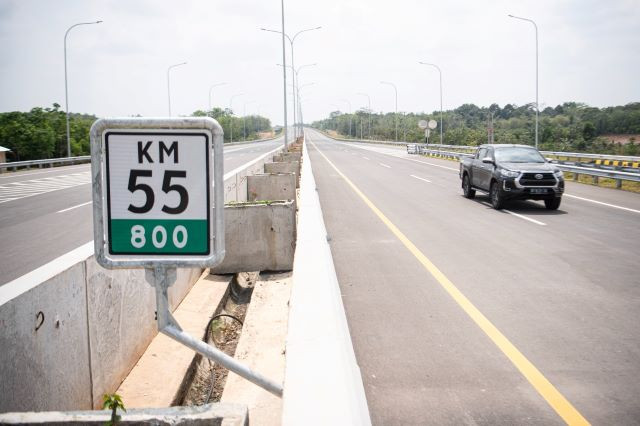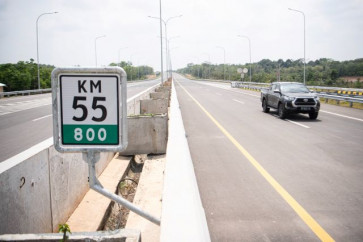Popular Reads
Top Results
Can't find what you're looking for?
View all search resultsPopular Reads
Top Results
Can't find what you're looking for?
View all search resultsThe 2024 budget and the dynamics of fiscal risk and space
While the draft 2024 state budget indicates that the economy is progressing well along the path to post-pandemic recovery, the government should keep a close watch on potential fiscal risk from contingent liabilities linked to debt guarantees.
Change text size
Gift Premium Articles
to Anyone
T
he draft 2024 state budget submitted to the House of Representatives last month showed sustained fiscal consolidation supported by significant economic growth over the previous two years.
State revenue has recovered and surpassed pre-pandemic levels after declining over the last two years due to the public health emergency. Between 2015 and 2019, growth in tax revenue lagged behind that of nominal gross domestic product (GDP), but after 2021, tax revenue growth outpaced nominal GDP growth.
Tax revenue growth reached 19 percent in 2021 and 34 percent in 2022, higher than growth in nominal GDP of 7 percent and 8.2 percent, respectively.
The fiscal deficit, after soaring to 6 percent of GDP in 2020, is now estimated to have returned to the pre-pandemic level of below 3 percent of GDP.
However, in the face of global economic uncertainty, the 2024 budget will encounter big downside risks from changes in the macroeconomic condition, policies, contingent liabilities and regional budget implementation.
As an oil importer with a fluctuating exchange rate system, changes in global oil prices and the rupiah’s value pose the biggest risk to Indonesia’s fiscal position.
According to the calculations of the Finance Ministry, every Rp 100 decline in rupiah depreciation against the greenback will increase revenue by Rp 4 trillion (US$266.6 million), but expenditure will balloon by Rp 10.2 trillion. Meanwhile, every $1 increase in oil prices will increase government revenue by Rp 3.6 trillion and increase expenditure by Rp 10.1 trillion.



















